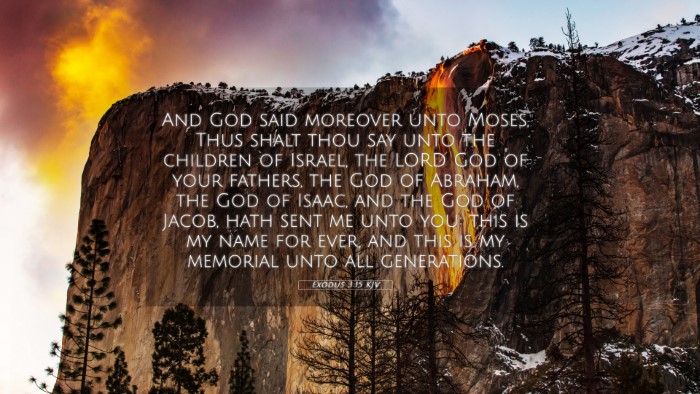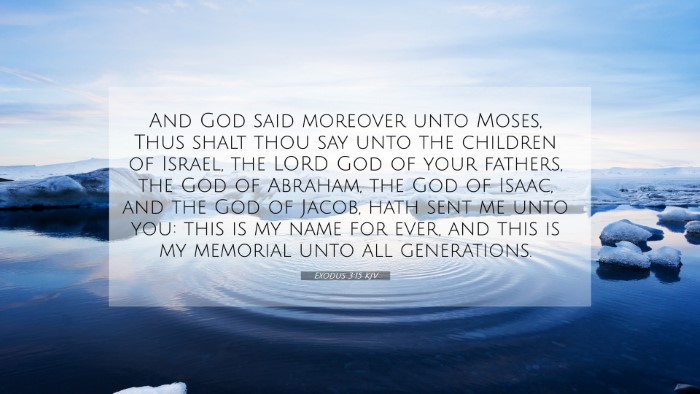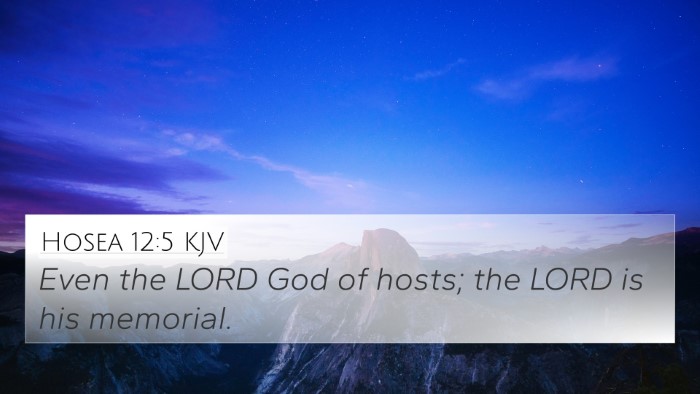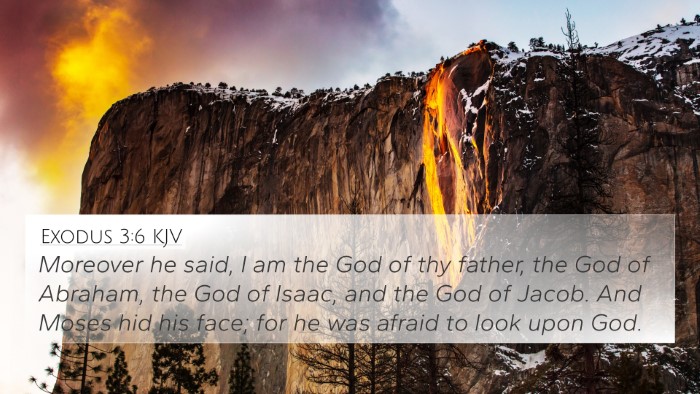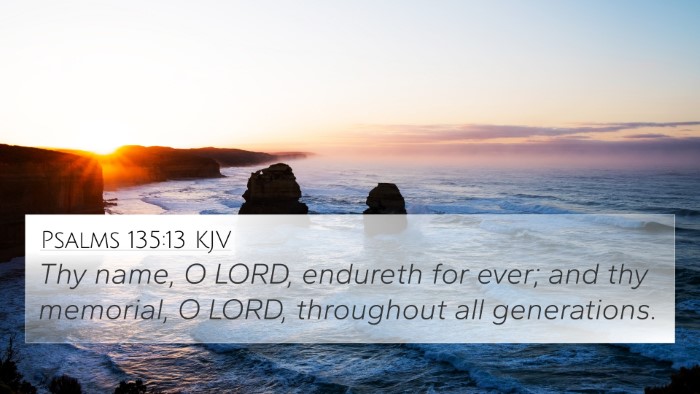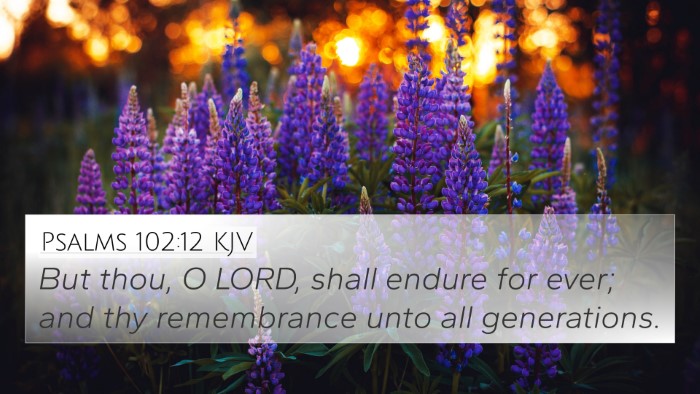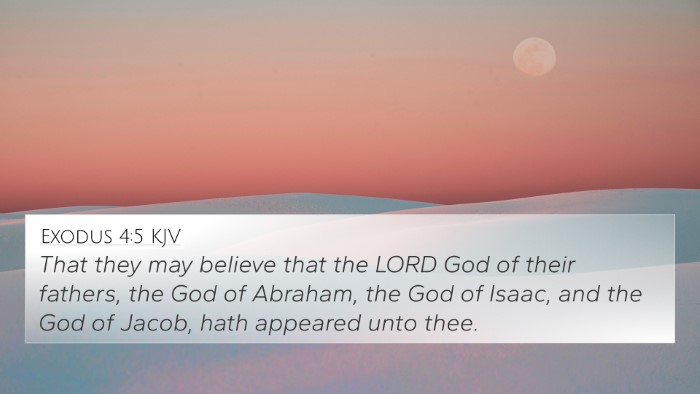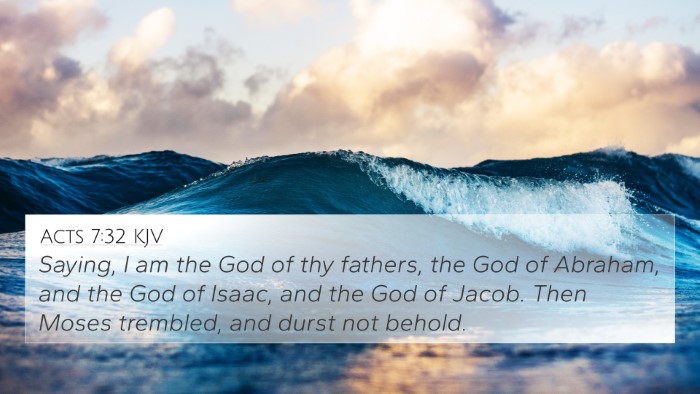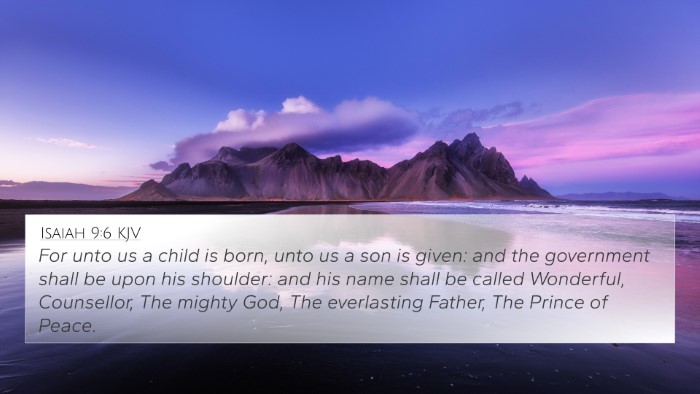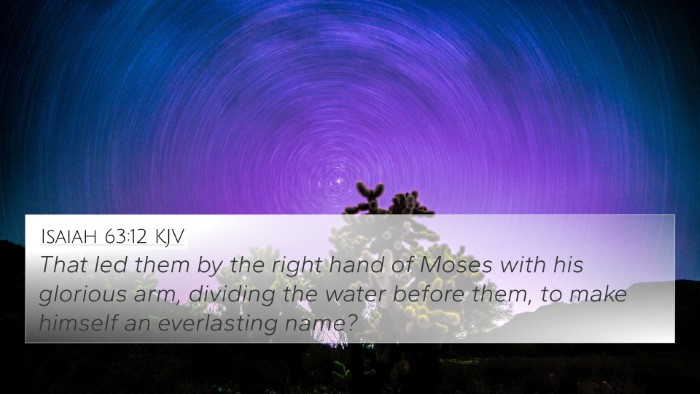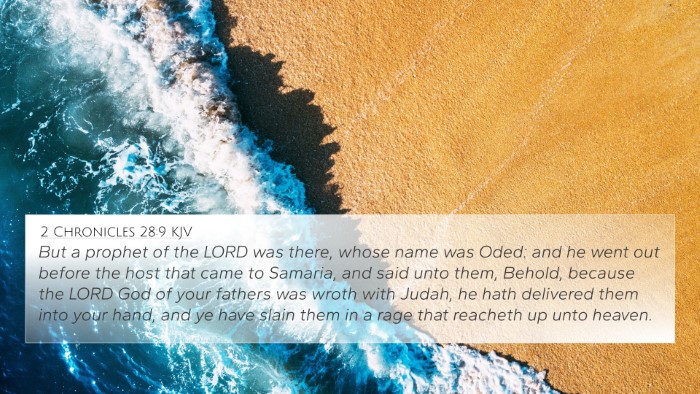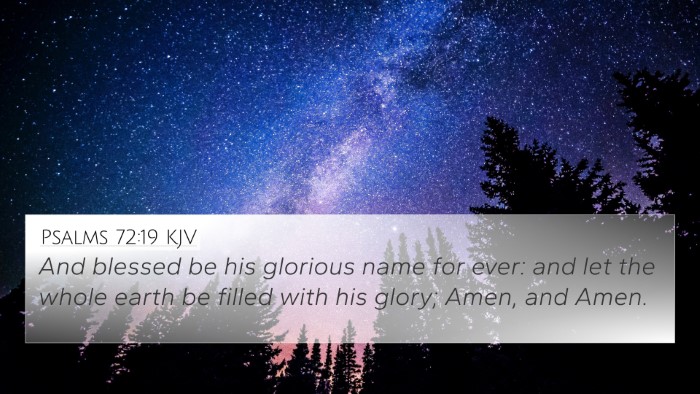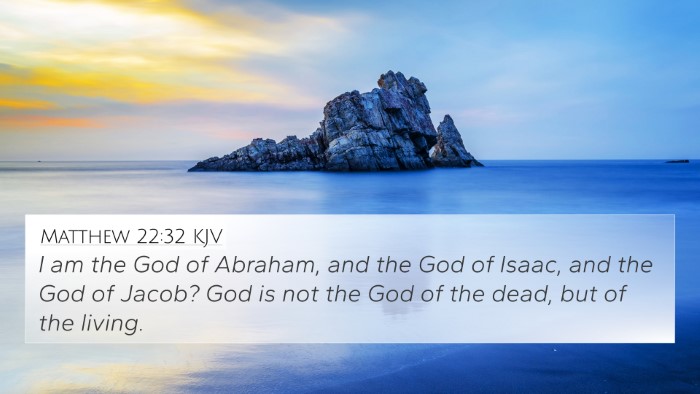Understanding Exodus 3:15
Verse: Exodus 3:15 - "And God said moreover unto Moses, Thus shalt thou say unto the children of Israel, The LORD God of your fathers, the God of Abraham, the God of Isaac, and the God of Jacob, hath sent me unto you: this is my name for ever, and this is my memorial unto all generations."
Summary of Meaning
This verse captures a crucial moment in the dialogue between God and Moses, marking the revelation of God's divine name and His everlasting nature to the people of Israel. God instructs Moses to communicate His identity, emphasizing the continuity of His covenant with the patriarchs: Abraham, Isaac, and Jacob. This passage underlines themes of divine authority, identity, and the significance of remembering God's actions throughout generations.
Insights from Public Domain Commentaries
Matthew Henry's Commentary
Matthew Henry highlights the importance of God's name, "I AM," as a declaration of His eternal existence. He emphasizes that God is the God of the covenant, reminding Moses that He has not forgotten His promises. The name signifies God's intimacy with His people and serves as a memorial, anchoring their faith in the One who has sustained them through history.
Albert Barnes' Notes
Albert Barnes elaborates on the significance of God's “memorial unto all generations.” He notes that this name serves as a foundation for Israel’s faith, linking them back to their ancestors. He argues that this verse represents God's authority and commitment to His people, reinforcing their identity as His chosen ones. It also stresses the importance of conveying God's message authentically to the Israelites.
Adam Clarke's Commentary
Adam Clarke focuses on the implications of the divine name provided in this verse. He asserts that it is a declaration of God's unchanging nature and His promise to His people. Clarke also points out that the command to remember God’s works through the ages serves as a reminder of God's faithfulness. The name not only serves as a source of comfort but also calls the Israelites to recognition and reverence.
Cross-References Related to Exodus 3:15
- Genesis 12:1-3 - The covenant with Abraham as the basis for God’s relationship with Israel.
- Exodus 6:2-3 - God reaffirms His name and covenant to Moses.
- Isaiah 42:8 - God's emphasis on His name and glory.
- Exodus 34:5-7 - The nature and character of God revealed to Moses.
- Malachi 3:6 - God's unchanging nature; "I am the LORD, I change not."
- John 8:58 - Jesus’ proclamation of His eternal existence as "I AM."
- Hebrews 13:8 - The constancy of Jesus Christ in relation to the unfolding story of faith.
Theological Themes
The themes present in Exodus 3:15 point significantly to God's covenant relationship with humanity. Theological exploration can delve into:
- The Nature of God - Emphasizing His eternality and unchanging character.
- Covenant Faithfulness - Understanding God's prolonged commitment across generations and His grace in remembering the covenant with Abraham.
- The Role of Names in Scripture - Analyzing how God's name and titles create a framework for understanding His identity and purpose.
Application of Cross-Referencing in Bible Study
Cross-referencing verses like Exodus 3:15 enhances the depth of understanding. By identifying connections between Bible verses, one can create a broader narrative about God's intentions and historical interactions with humanity. Utilizing tools for Bible cross-referencing, such as a Bible concordance or a cross-reference guide, can greatly assist in uncovering these intricate connections.
Tools for Bible Cross-Referencing
- Bible concordance for finding specific terms and related verses.
- Cross-reference Bible study guides to systematically explore themes.
- Comprehensive Bible cross-reference materials to navigate spiritual themes.
Conclusion
Exodus 3:15 is not merely a historical statement; it is rich with theological implications and connections. Engaging with this verse through comparative Bible verse analysis deepens one's understanding of God's unchanging nature and His covenant with believers. The insights gathered from commentaries like those of Matthew Henry, Albert Barnes, and Adam Clarke provide essential frameworks for interpreting and applying Scripture, especially in terms of recognizing God's enduring identity across generations.

